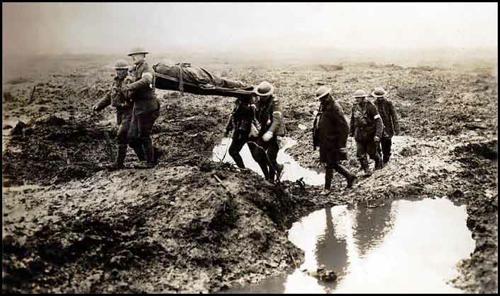
The Celtic League have written to the French Ambassador in London seeking clarification of an incident in Belgium where it appears the French authorities have intervened to prevent a plaque being fixed to a War memorial bearing an inscription in the Breton language.
The Celtic League have written to the French Ambassador in London seeking clarification of an incident in Belgium where it appears the French authorities have intervened to prevent a plaque being fixed to a War memorial bearing an inscription in the Breton language.
Bretons contributed disproportionately to the armed forces of France, not least in World War I, and at Dixmude in Belgium, the site of the memorial in dispute, over 2000 Breton Marines died in one engagement alone.
The situation relating to Celtic languages on War Memorials does not seem to have been contentious in other countries. The National War Memorials in Scotland and Wales both have inscriptions in the native languages. In the Isle of Man the National war memorial appears to have no such inscription although as far as we are aware there is no proscription. Indeed at the time of the first World War probably 5-10 percent of the population were Manx speakers. Ironically, the memorial (like so many) is to the design of a Celtic cross.
The League have pointed out to the French Ambassador that if there is a proscription by France on the use of the Breton language on war memorials it is scandalous. We have also pointed out the paradox that many memorials in France in any case have inscriptions in various other Celtic languages.
Memorials and plaques to Scottish Regiments have Gaelic inscriptions. In addition in 1925, the Irish National War Memorial Committee decided to erect memorials to the 10th (Irish) and 16th (Irish) Divisions in three of the countries in which they had fought. Three granite crosses were constructed, each weighing about four tons. The crosses were inscribed in Irish (Gaelic) "Do chum Gloire De agus Onora na hEireann" (To the Glory of God and Honour of Ireland). One commemorating the 10th (Irish) Division was erected in Salonika. The cross commemorating the 16th (Irish) Division's service in Flanders was erected at Wytschaete. The 16th (Irish) Division's service in France was commemorated by a cross which was placed in the graveyard of the church at Guillemont.
"H.E. Maurice Gourdault-Montagne,
Ambassador of France to the United Kingdom
French Embassy
58 Knightsbridge
London SW1X 7JT
Dear M. Ambassador,
I was very concerned to learn recently that objections had been raised to an inscription on a War memorial in Belgium worded in the Breton language.
Hundreds of thousands of Breton servicemen have served France over the centuries, not least in the two World Wars.
The memorial at Dixmude in Belgium was inscribed with a plaque in the Breton language in August 2006. It said "In tribute to the Bretons who died in Dixmude for freedom, October 16th – November 10th - Enor d'ar vretoned marv e Dixmuiden evit ar frankiz 16 a viz here – 10 a viz du 1914"
Following an act of mindless vandalism it was removed for repair. Prior to to it being re-fixed to the war memorial, one week before the official ceremony, Dixmude's mayor received a letter from a delegate to Souvenir Français in Belgium who asked for the ceremony to be postponed and explained that the French embassy had been informed. Apparently, the postal address of Souvenir Français is the same as the French embassy's in Belgium - so one can only assume that this intervention has official sanction.
From enquiries I have made it appears that there is a general proscription on War Memorials carrying inscriptions in the Breton language. Can you confirm or deny this?
If it is the case that the Breton language is not allowed to be used on War monuments then this is little short of scandalous. In addition, it does create something of a paradox because some British war memorials in France are inscribed with Celtic languages.
Many Bretons died in the lengthy battles in and around Dixmude. In one engagement over 2000 Breton Marines were killed. Many of those who died would at that time have been native speakers of the Breton language. In the circumstances it surely is appropriate to recognise their ultimate sacrifice in their own language.
Yours faithfully,
J B Moffatt Director of Information"
There is a related article to this one on the Agence Bretagne Presse site (translation feature at base of page) at:
https://www.abp.bzh/fetch.php?id=10955&key=Dixmude&key1=J B Moffatt Director of Information Celtic League
08/06/08

Commentaires (0)
Aucun commentaire pour le moment. Soyez le premier à réagir !